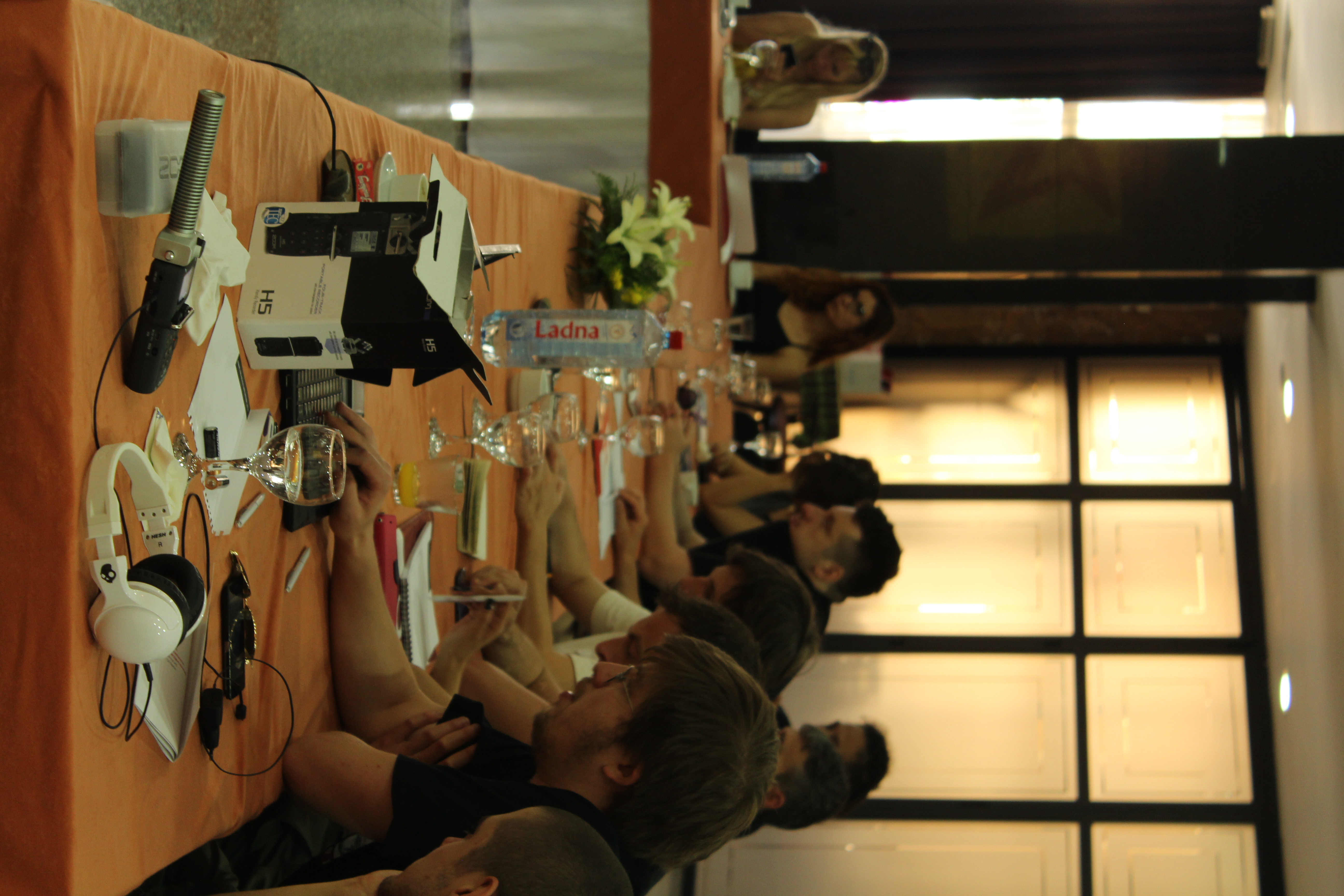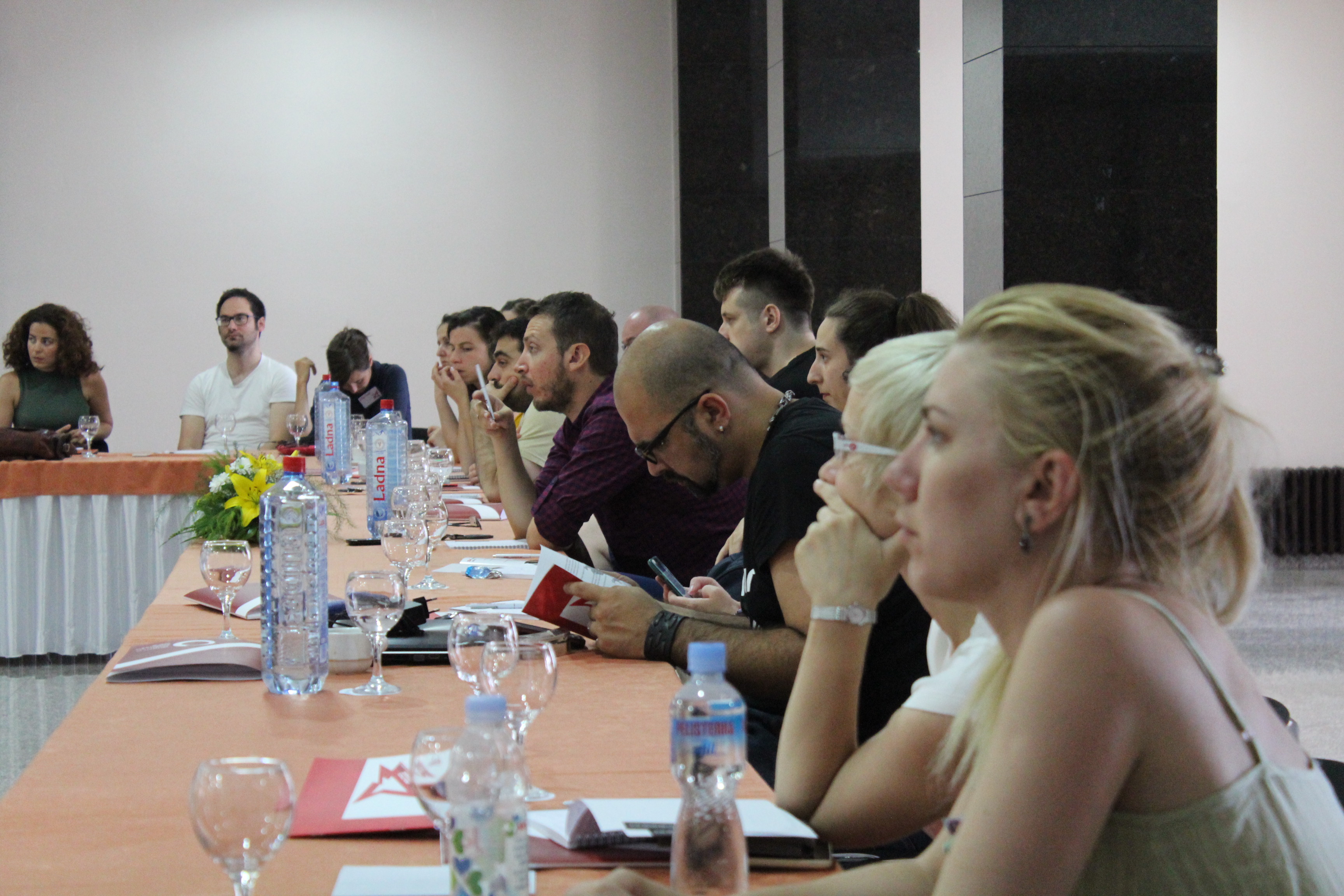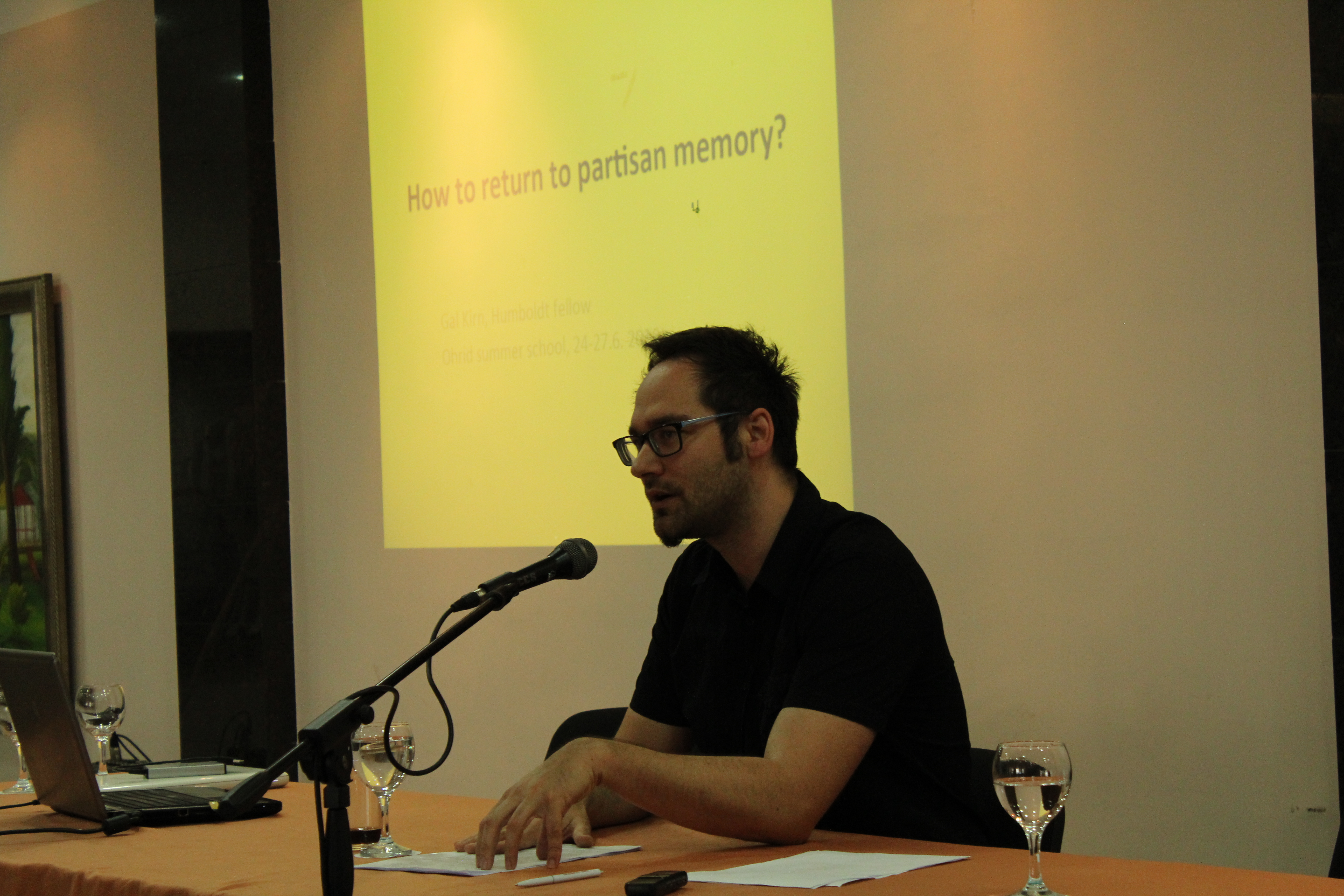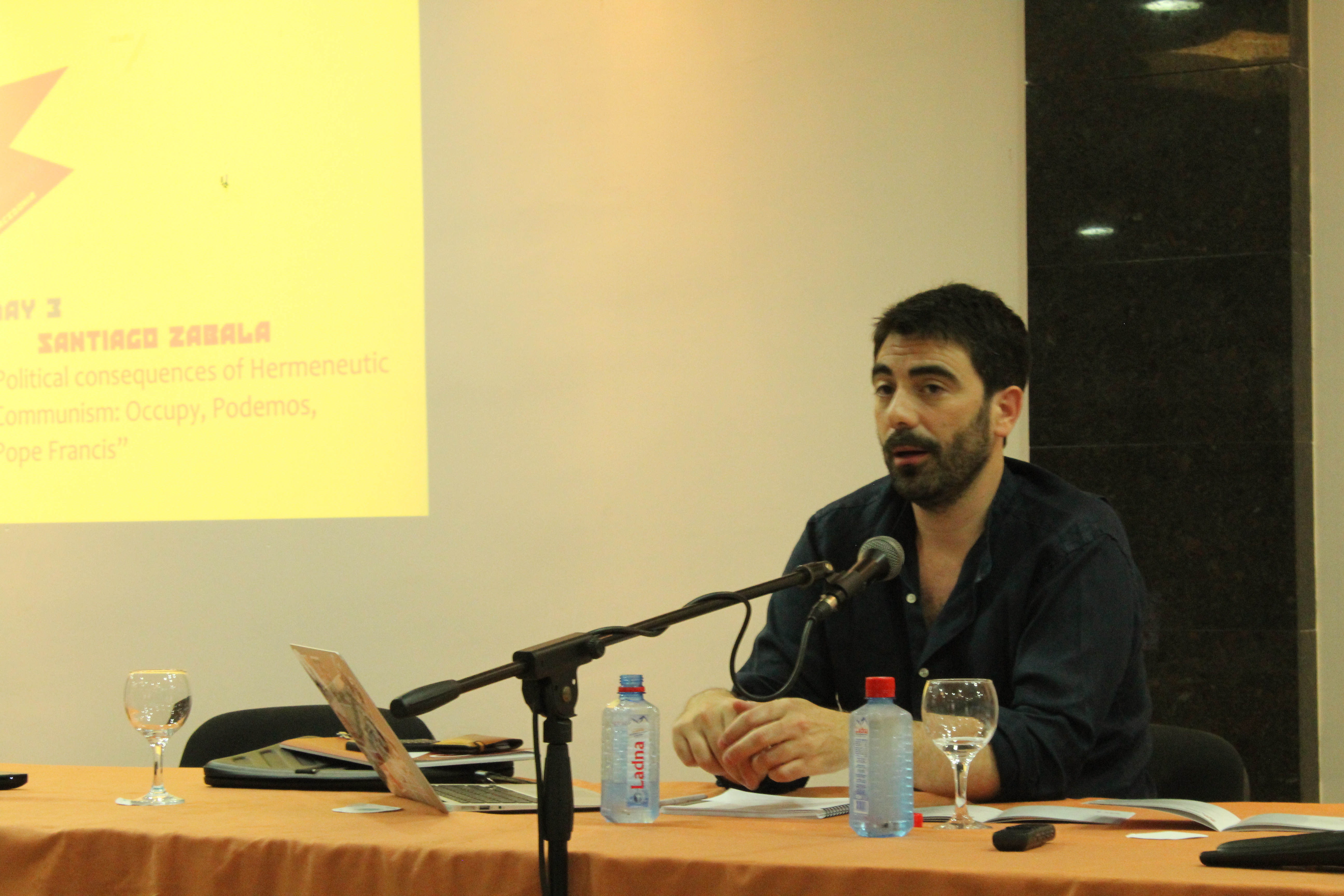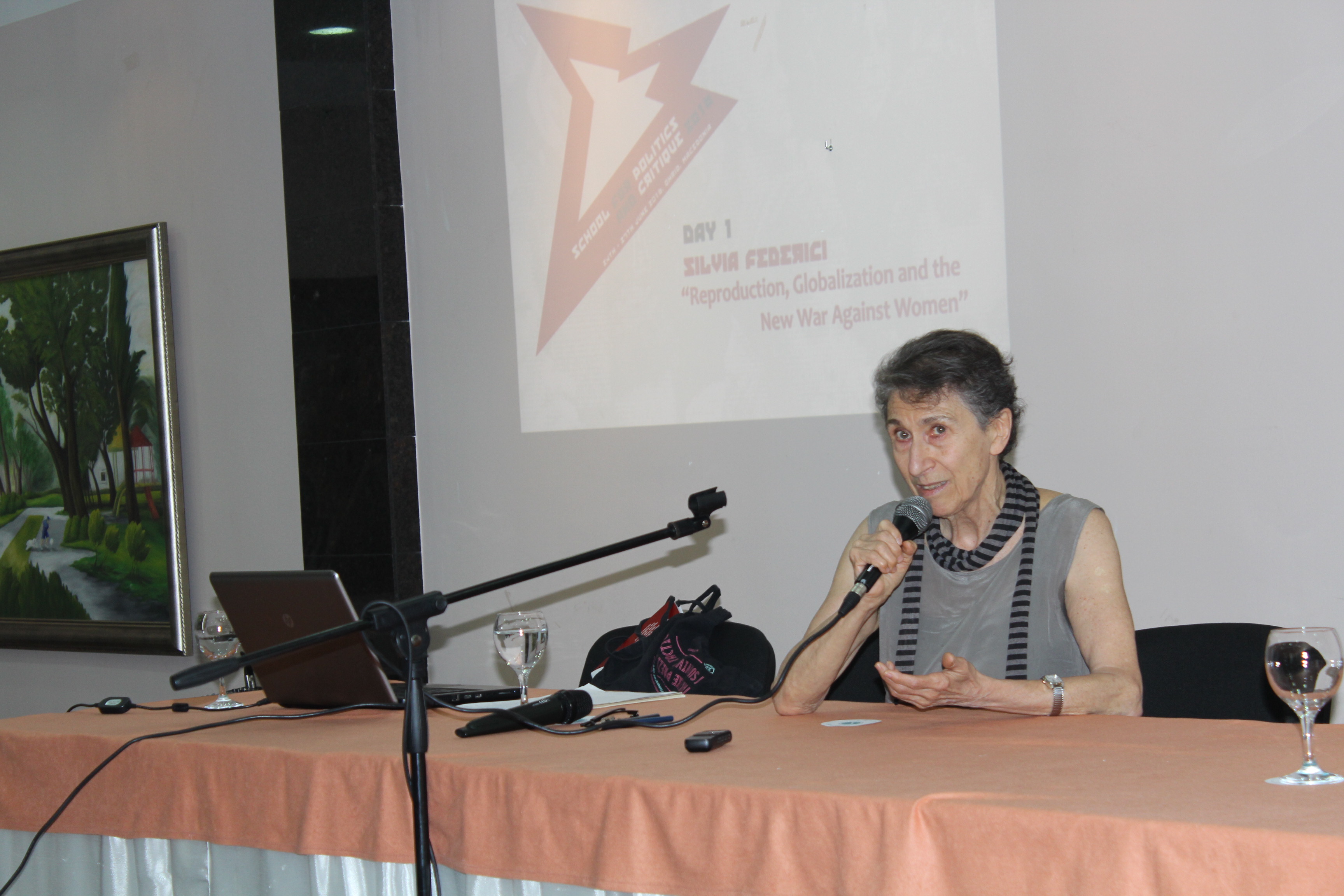Building Blocks for the Left
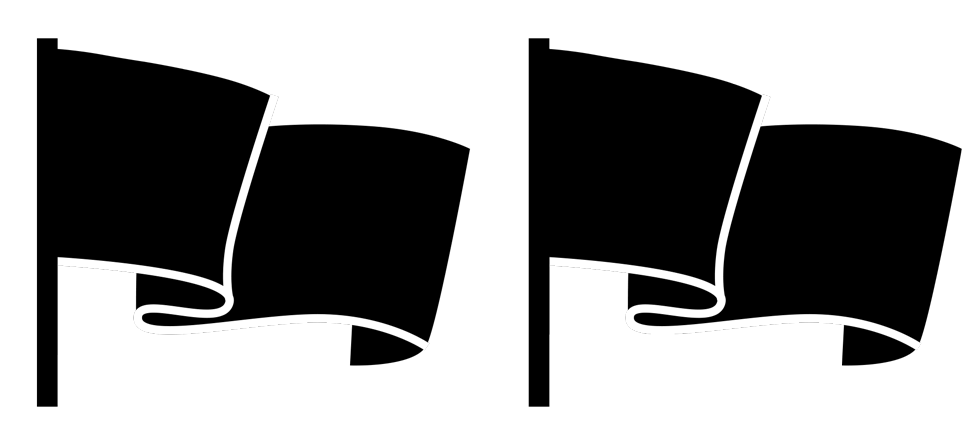
The period after the disappointment from SYRIZA's government and the (re)enacting of the debates on the level of intervention, European or national, that new socialist strategies should concentrate, was ruptured by the ›Brexit‹ with a deeper debate on the very position of the Left towards the European Union. The Balkan case with some countries already members and some aspiring is a peculiar space for political discussions among the anti-capitalist left and progressive emancipatory groups on how to devise a socialist strategy that works. It is in this context that the »School for Politics and Critique« was organized in Ohrid, Macedonia between 23rd and 27th of June 2016. The title of this year's school - »Regional Political Forum on Marxist Theory and Practice in the Southeast Europe« marks the challenge that the new left is nowadays facing in the region, that is: how to reinvent the Marxist theory and practice in a post-socialist context inside a region that is probably the most peripherized one in relation to the European Union's core countries of capital.
The »School for Politics and Critique« is an educational and emancipatory platform of the Institute of Social Sciences and Humanities – Skopje supported by the Rosa Luxemburg Stiftung Southeast Europe. The School started in 2014 and aimed to strengthen the Marxist and social critique in Macedonia through a series of workshops and lectures dedicated to activists and theorists from the region, but also from other parts of Europe. It total, there were 17 workshops organized until 2016 with more than 500 participating activists and 25 lecturers including theorists, philosophers, political activists, journalists and public intellectuals. This year, intending to connect the local and regional activist and theoretical scenes in one Forum, we succeeded in enabling an exchange of experiences of action and in thinking and rethinking conceptual frameworks of political strategies. Thus the Forum, also contributed to the process of developing a regional political reference for new emancipatory left movements.
The »School for Politics and Critique« in 2016 was dedicated to current political issues in the region, questions related to its shared communist past and the possibilities of thinking Marxism based on the intersections of our once Eastern and now Western legacies of socialist theory and praxis. By bringing together activists and scholars, the event addressed the issues on political strategies for future action that are being discussed simultaneously by various groups in the region and which bring forward political and theoretical content that is globally relevant. The this year »School for Politics and Critique« also explored the current Marxist and feminist thought relevant to devising political actions of various activist/political groups. All this towards strengthening emancipatory knowledge in times of both neoliberal attack via the economy and social depletion of the working people and the reintroduction of much cruder patriarchic and traditional values through various sets of conservative policies.
Acknowledging the emancipatory potential of the interplay of theory and practice, the event contributed to the rethinking of emancipatory practices in the Balkans by opening a discussion within the contemporary Marxist thought. The most significant merits for the success of this endeavor are to be assigned to the three distinguished scholars and activists shared their thoughts with the participants of the School, Silvia Federici, Santiago Zabala and Gal Kirn. The event brought together 32 Macedonian and regional activists and scholars from Serbia, Croatia, Slovenia, Bosnia, Bulgaria, Greece, Hungary, Romania and Albania in an engaged debate on contemporary socialist and Marxist thought on political strategies of emancipation.
Silvia Federici delivered two lectures through which she analyzed the pertinence of the primitive accumulation and dispossession in the 21st century focusing on the strong gender elements of the two continuous processes. In the first lecture »Reproduction, Globalization and the New War Against Women« she presented the global tendencies in times of modern austerity policies that re-enact a new war against women in various modes, from the encirclements in Africa to cutting on social transfers in Great Britain. In the second lecture named »Women, Witch-hunting and Originary Accumulation: Past and Present«, Federici brought forward arguments from her theory on the very initiation of capitalist exploitation in which she attempts to correct Marx's analysis through inscribing into it a gender perspective.
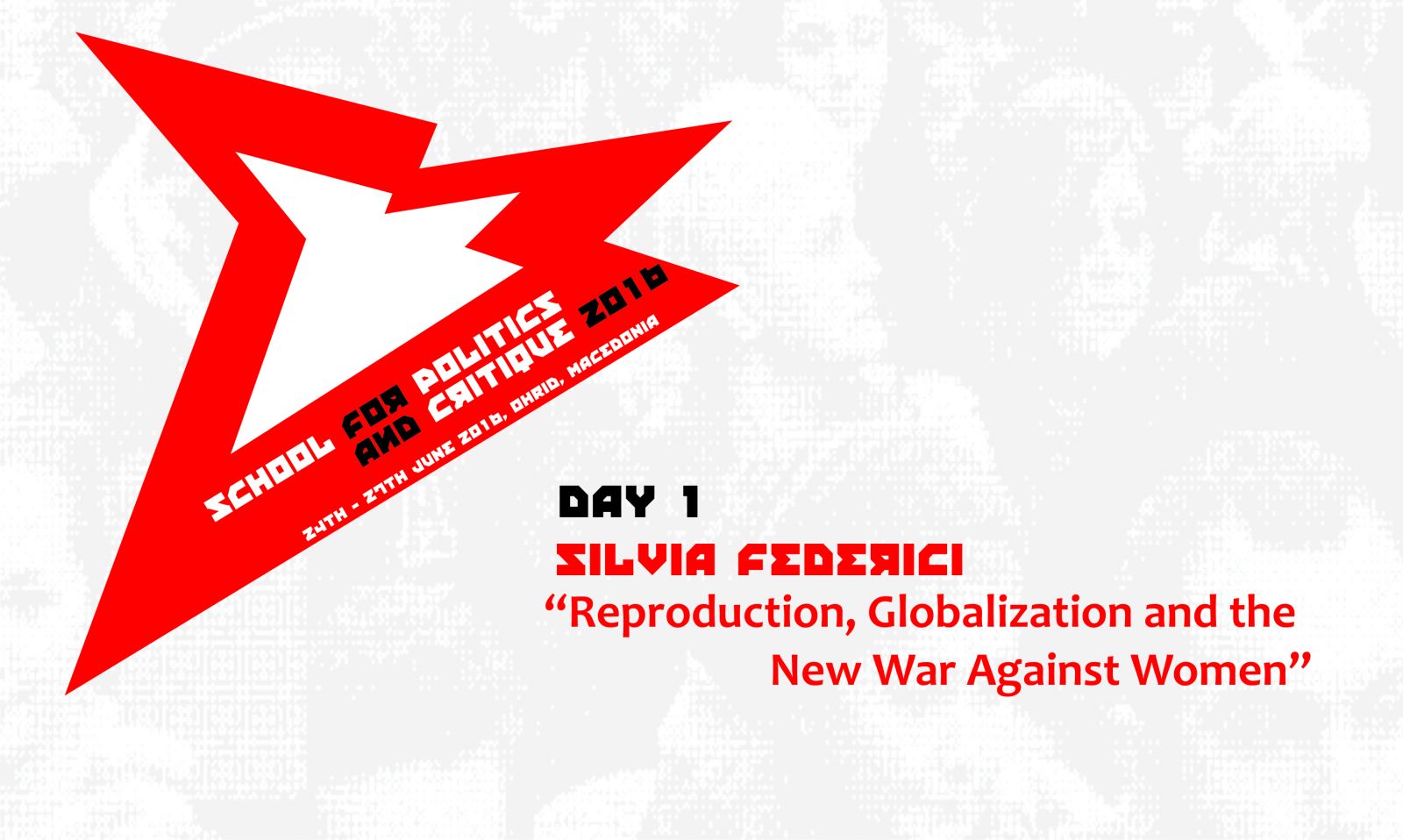
The second speaker, Gal Kirn, spoke about the possibilities to find potential political lessons in the revolutionary partisan experience created before the formation of the Yugoslav socialist state. His lecture »Disentangling Partisan Memory: What Can Partisan Legacy Tell Us in the (Post)Yugoslav Context?« also ventured in the different models of partisan revolutionary art production to find the social visions that were embedded in their collective struggle. His second lecture »Notes on Developments and Failures in the Balkan Left: From Slovenian Uprising to Party Formation« took the Initiative for Democratic Socialism in Slovenia as a case study for a concrete analysis of political practice with representative democracy for anti-capitalist movements and structures. As it is already known from different other contexts, this path is marred with contradictions the Left must confront.
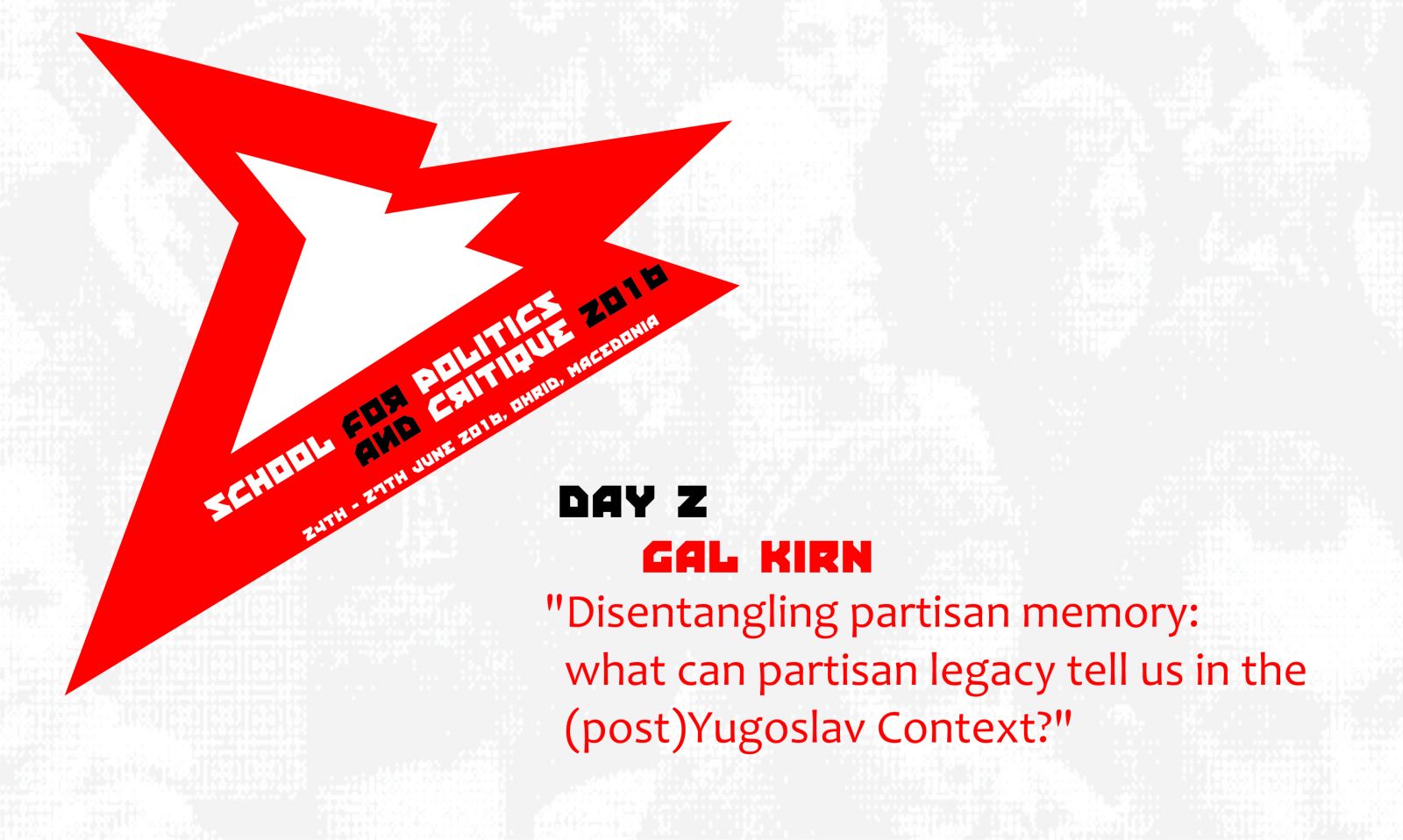
Santiago Zabala's lecture »Philosophical Foundations of Hermeneutic Communism: Ontology, Hermeneutics, Conversation« focused on presenting the philosophical concepts of his theory of hermeneutic communism and how hermeneutics functions in devising a new philosophical reading of events and developments within the political sphere. In the next session, Zabala provided an overview of the different forms of political presence of communist tendencies that result from such a reading of tendencies. His lecture on »Political consequences of Hermeneutic Communism: Occupy, Podemos, Pope Francis« claimed that the formation of formal political structures is of utmost importance for the communist path and that even the emancipatory claims of pope Francis should be welcomed and embraced by the new left.
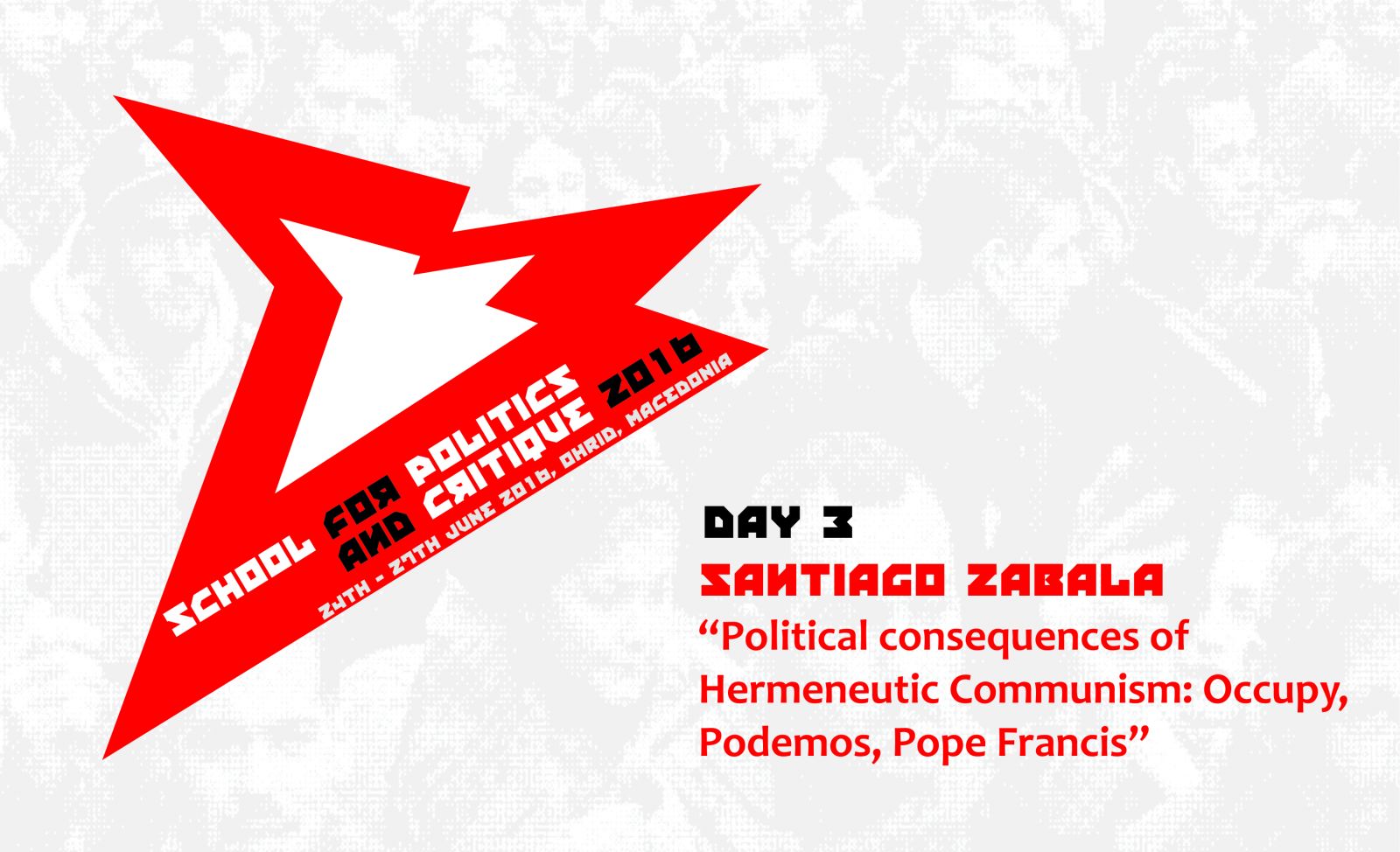
The overall evaluation of the event is that it succeeded in engaging the regional and local activists in a participatory and provoking discussion and exchange. The inputs from the lecturers enabled a deep exploration of the issues of analysis and strategies to tackle the contemporary regional and global problems. Some of the issues that were discussed include: the level of political organization and strategy – whether there is an European instance or the struggles should concentrate on national level with strong collaborative international bonds; the issue of Brexit and the consequences related to increasing nationalism and xenophobia; the heritage of partisan revolutionary politics and culture production, and what relevance does it have today for the new left; the issue of social movements and their transformation into political parties – examples from Slovenia and Spain, the feminist analysis of exploitation in times of crisis and global aspects of gender related to capitalist expropriation.
The follow up from the »School« will include circulation and publishing of both videos and texts from the deliberations with the wider public in the region through social media and through the publication of the Identities Journal.
Pursuing the production of new political content through such events, the »School« will continue to be one of the most important political engagements of the Institute of Social Sciences and Humanities – Skopje. What remains crucial for the new Left in the Balkan region is to ensure the sustainability of the processes of political production of content and its social reproduction. The School for Politics and Critique will remain committed to this aim.
Author: Artan Sadiku
